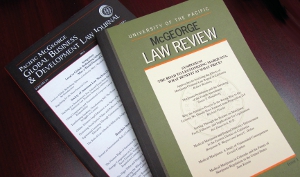Document Type
Article
Publication Date
2018
Abstract
Cannabis has a long history in the United States. Originally, doctors and pharmacists used cannabis for a variety of purposes. After the Mexican Revolution led to widespread migration from Mexico to the United States, many Americans responded by associating this influx of foreigners with the use of cannabis, and thereby racializing and stigmatizing the drug. After the collapse of prohibition, the federal government repurposed its enormous enforcement bureaucracy to address the perceived problem of cannabis, despite the opposition of the American Medical Association to this new prohibition. Ultimately, both the states and the federal government classified cannabis as a dangerous drug with no therapeutic purpose, treating it the same as cocaine and heroin.
Over the past few decades, a number of states have decriminalized cannabis and have permitted residents to purchase cannabis for medical conditions. More recently, a number of states have legalized adult-use, or the “recreational use” of cannabis, including California. Although cannabis remains a Schedule I drug under the federal Controlled Substances Act, California now has a complex regulatory scheme in place that permits parties to cultivate, process, sell, and use cannabis. The appointment of Attorney General Jeff Sessions, who is famously opposed to the decriminalization of cannabis, sharpened the tensions between federal prohibition and state-legal use.
This article addresses one critical issue that arises in this new industry: whether lawyers may ethically advise clients engaged in state-legal cannabis businesses. Several states that employ the Model Rules of Professional Conduct have formally amended their rules to expressly permit cannabis lawyering. The Supreme Court of California has not directly and expressly addressed the matter, although adult-use cannabis has been legal since January 1, 2018 and many lawyers have been advising clients with regard to the medical cannabis industry for years.
This article addresses “ethical cannabis lawyering” in three distinct ways. First, it considers whether it is “legal” for attorneys to assist state-legal cannabis businesses that are actively engaged in violating federal criminal law. Attorneys are likely exposed to “aiding and abetting” liability and may face asset forfeiture if they accept money generated by the cannabis trade. Second, it considers whether it is “ethical” for attorneys under California state law to assist cannabis clients. After reviewing the determinations made by states under the Model Rules of Professional Conduct, the article addresses how California has addressed the question. Following the nonbinding opinions of the San Francisco Bar Association and the Bar Association of Los Angeles, the article argues that cannabis lawyering is not only ethical but is a positive social good, insofar as the representation is focused on compliance with state law and regulations. Third, the article considers whether it is “prudent” for attorneys to assist cannabis clients. In this regard, the primary issue is the potential waiver of the attorney-client privilege in federal question civil actions and criminal actions brought in federal court. The article concludes with a checklist of considerations for attorneys considering representing parties in the cannabis industry. This article is current as of November 1, 2018.
Publication Title
St. Mary's Journal on Legal Malpractice & Ethics
Volume
9
Recommended Citation
Mootz, Francis J. III (2018) "Ethical Cannabis Lawyering in California," St. Mary's Journal on Legal Malpractice & Ethics: Vol. 9 : No. 1 , Article 1.



